The increasing popularity and apparent benefits of digitization have forced all sectors to invest in this domain. Recent government initiatives like Digital India have steered significant efforts of embracing digital means for efficient functioning of key sectors. While traditional forms of teaching work in a generic manner, technology-enabled solutions allow customization of traditional approaches to suit individual student needs.

When it comes to digitization, there are primarily three trends that are ruling the roost [1]. Firstly, content is largely going digital with a rapidly increasing sales of digital textbooks. Secondly, the transformation of content into its digital counterpart allows its access and distribution to become global without the need for added logistics or infrastructure. Lastly, the most impactful benefit of digital education is customized learning. As a result, the teacher can act as a guide and he or she can provide additional assistance to students on need basis. The growing use of technologies like learning management systems, open content, cloud computing, mobile learning and data analytics are being adopted to assist digital education and take it to newer heights.
Digital Education – A Step Up for Traditional Education
Traditional methods that involve the use of blackboard and chalk, with most of the approach centered around teacher, are no longer used. This approach has largely been replaced with powerpoint presentations, practical demonstrations, online training and other similar digital platforms, with major focus on interactive learning. Some of the infrastructural benefits of digital education include cost-effectiveness and efficient content delivery. Moreover, the teacher can spend more time explaining concepts in comparison to traditional approach where most of the time is spent in delivering content. It also addresses some of basic flaws in traditional teaching, which include lack of interactivity and promotion of bad practices like memorization.
This story is from the March-April 2019 edition of Scientific India.
Start your 7-day Magzter GOLD free trial to access thousands of curated premium stories, and 9,000+ magazines and newspapers.
Already a subscriber ? Sign In
This story is from the March-April 2019 edition of Scientific India.
Start your 7-day Magzter GOLD free trial to access thousands of curated premium stories, and 9,000+ magazines and newspapers.
Already a subscriber? Sign In
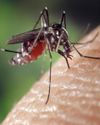
An insight into Chandipura virus in India
Recently lot of news regarding disease due to Chandipura virus has emerged in various newspapers/magazines. After reading the reports published it seems that thing is still brewing in the natures nest and it could affect mankind.

Why elephants never forget?
An elephant has a very large brain for its size and the 'temporal lobe' region responsible for memory is more developed with a greater number of folds - this results in powerful abilities to 'download' important survival data such as where to find food and water, and who is friend or foe.

Use of Algae for Wastewater Treatment Containing Heavy Metals
Wastewater treatment is a critical environmental issue particularly when it comes to the removal of heavy metals.

Nano priming Seeds: A Small Innovation Sparkling Big Advances in Germination
Nanopriming is an emerging agricultural technique where the seeds are treated with nanoparticles to improve their germination, growth, and overall performance.
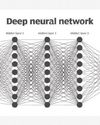
Nobel Laureates in Physics 2024: Revolutionizing AlThe Physics Foundations Behind Machine Learning
This year's two Nobel Laureates in Physics have used tools from physics to develop methods that are the foundation of today's powerful machine learning.
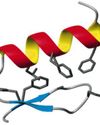
Revolutionizing Biology: The 2024 Nobel Prize in Chemistry Celebrates Breakthroughs in Protein Design and Structure Prediction
The Nobel Prize in Chemistry 2024 is about proteins, life's ingenious chemical tools.
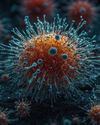
New findings on animal viruses with potential to infect humans
Scientists investigating animal viruses with potential to infect humans have identified a critical protein that could enable spillover of a family of organisms called arteriviruses.

Father-Daughter Team Decodes Mars' Alien Signal
There is no definitive answer to whether aliens exist, but there is a lot of work being done to find out:
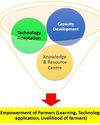
Krishi Vigyan Kendras: Working for Farmer's Welfare
Krishi Vigyan Kendras (Farm Science Centres) are the District level institution serving as an agriculture knowledge resource & capacity development centre which plays indispensable role in front line extension regarding agriculture system in scientific way.

Sixth generation Computer: The future computing technology
We are in a transition towards a digital world, where everything will be dealt with in digital format.